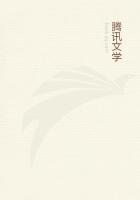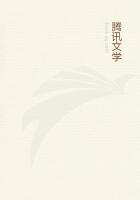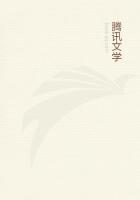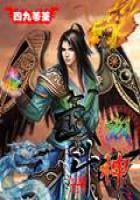There must surely be truth in the account he gives of power; so different from that of Locke on the one hand, and that of the high <a priori> philosophers on the other."Every action we perceive gives a notion of power; for a productive cause is implied in every action or event, and the very idea of a cause comprehends the power of producing its effects.Let us only reflect on the perception we have when we see a stone thrown into the air out of one's hand.""As I discover power in external objects by the eye, so Idiscover power in {176} my mind by an internal sense." "This feeling is involved in the very perception of the action, without taking in either reason or experience." "We cannot discover power in any object as we discover the object itself, merely by intuition; but the moment an alteration is produced by any object, we perceive that the object has a power to produce that alteration, which leads us to denominate the one a cause and the other an effect." It is generally acknowledged that we know objects within and without us only by their properties; but what are properties but powers, which must thus be known intuitively with the objects that possess them.
But the doctrine which startled the public was that of philosophical necessity, as expounded and defended by him.
It is a circumstance worthy of being noted that this doctrine was upheld by three men, who arose about the same period and in much the same district of country, -- David Dudgeon, David Hume, and Henry Home; it looks as if it were the residuum left by the doctrine of predestination, when the flowing waters of the stream have been dried up by an and period." With respect to instinctive actions, no person, I presume, thinks that there is any *******; an infant applies to the nipple, and a bird builds a nest, no less necessarily than a stone falls to the ground.With respect to voluntary actions done in order to produce some effect, the necessity is the same, though less apparent at first view.The external action is determined by the will;the will is determined by desire , and desire, by what is agreeable or disagreeable.Here is a chain of causes and effects, not one link of which is arbitrary, or under command of the agent.He cannot will but according to his desire; he cannot desire but according to what is agreeable or disagreeable in the objects perceived.Nor do these qualities depend on the inclination or fancy: he has no power to make a beautiful woman appear ugly, nor to make a rotten carcase smell sweetly." "Thus, with regard to human conduct, there is a chain of laws established by nature, no one link of which is left arbitrary.By that wise system man is made accountable; by it he is made a fit subject for divine and human government; by it persons of sagacity foresee the conduct of others; and by it the presence of the Deity with respect to human actions is clearly established."He founds the responsibility of man upon this very doctrine.
{177} "The final cause of this branch of our nature is admirable.If the necessary influence of motives had the effect either to lessen the merit of a virtuous action, or the demerit of a crime, morality would be totally unhinged."In regard to liberty, man acts with the conviction of his being a free agent, and is quite as much accountable as if he were truly free.The answer to all this is, that man has an intuition in regard to his possessing ******* quite as deep and ineradicable as his intuition about cause and effect.If we attend to the latter of these, and adhere to it, as Home does, we should equally hold by the other.
The friends of religion, unenlightened and enlightened, felt at once that there was something here repugnant to all that they had been led to believe about God and man; and Henry Home came to be put in the same class with David Hume, to whom he was in many respects opposed.In 1753, there appeared " An Estimate of the Profit and Loss of Religion, illustrated with References to Essays on Morality and Natural Religion." The author was Rev.George Anderson, who had been an army officer, and was now chaplain to Watson's Hospital in Edinburgh, and who wrote some tracts against the stage, and a " Remonstrance against Bolingbroke's Philosophical Religion." He is described, by Home's biographer, as " a man of a bold spirit and irascible temperament, and considerable learning." This gave rise to other pamphlets, as " A Letter to the Author of a late Book entitled an I Estimate of the Profit and Loss of Religion."'












